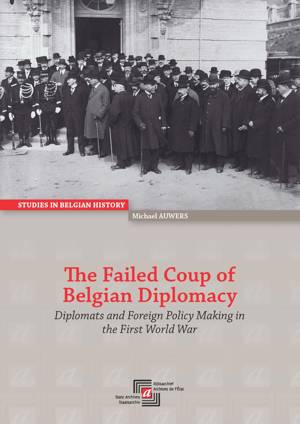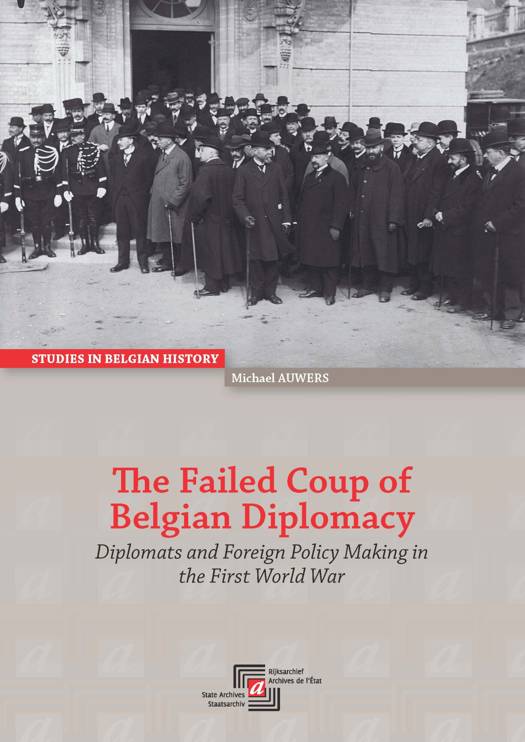
- Afhalen na 1 uur in een winkel met voorraad
- In januari gratis thuislevering in België
- Ruim aanbod met 7 miljoen producten
- Afhalen na 1 uur in een winkel met voorraad
- In januari gratis thuislevering in België
- Ruim aanbod met 7 miljoen producten
The Failed Coup of Belgian Diplomacy: Diplomats and Foreign Policy Making in the First World War
Michael AuwersOmschrijving
The Failed Coup of Belgian Diplomacy unsettles traditional ideas about Belgian foreign policy during the First World War. According to the widely accepted narrative, inexperienced politicians leading the Belgian delegation at the Paris Peace Conference made a strategic error in focusing on territorial aggrandizement at the expense of the neutral Netherlands when the political reality and international political culture should have encouraged them to avoid such overreach. However, this narrative places far too much emphasis on politicians in the making of foreign policy. More importantly still, it significantly underestimates the impact of Belgian diplomats. Examining clashes between diplomats over foreign policy objectives, this book offers a vital corrective to these ideas. It argues that an upcoming and impatient generation of junior diplomats, schooled in the colonial ventures of the late King Leopold II, ousted their senior colleagues from the Foreign Ministry, side-lined King Albert I, and took over the reins of Belgian diplomacy. More broadly, The Failed Coup of Belgian Diplomacy challenges established accounts of the First World War as decisive in the political takeover of Europe’s diplomatic machinery. In most belligerent countries, diplomats certainly faced accusations of incompetence, with many being removed from the centre of European politics during the war’s early stages and later failing to reclaim their influence at the peace conference. In Belgium, however, junior diplomats easily managed to steer politicians away from neutrality towards an annexationist agenda. Belgian failure at Versailles was largely caused by the absence of consensus on foreign policy aims within the diplomatic corps. This absence weakened the cohesion and efficacy of Belgian diplomacy.
Specificaties
Betrokkenen
- Auteur(s):
- Uitgeverij:
Inhoud
- Aantal bladzijden:
- 228
- Taal:
- Engels
- Reeks:
- Reeksnummer:
- nr. 12
Eigenschappen
- Productcode (EAN):
- 9789463912938
- Verschijningsdatum:
- 5/09/2022
- Uitvoering:
- Paperback
- Afmetingen:
- 170 mm x 240 mm
- Gewicht:
- 410 g

Alleen bij Standaard Boekhandel
Beoordelingen
We publiceren alleen reviews die voldoen aan de voorwaarden voor reviews. Bekijk onze voorwaarden voor reviews.









